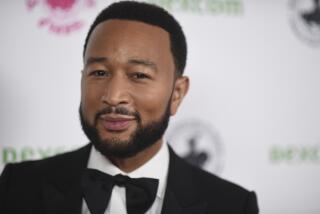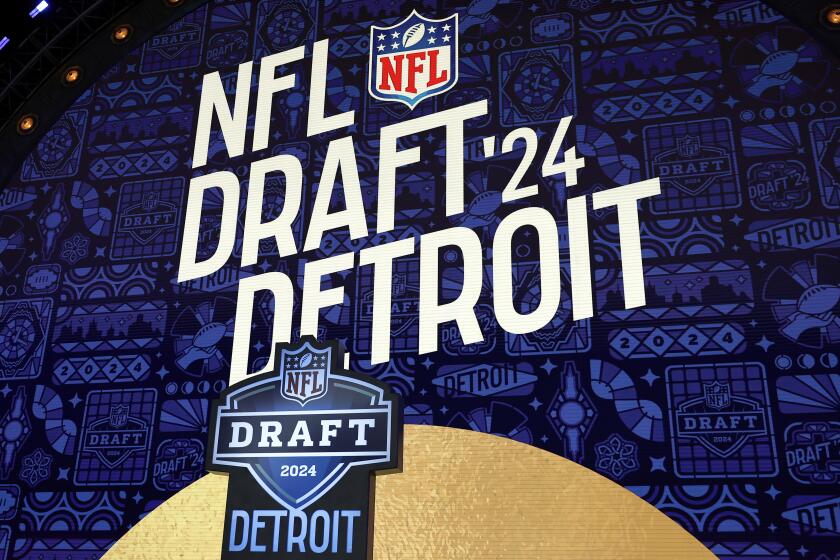When athletes post on Twitter, controversy can follow
Rashard Mendenhall and Reggie Bush are star NFL running backs who have found themselves backpedaling after recent controversial remarks made on Twitter.
Todd Reynolds is a sports agent whose recent comment about same-sex marriage on the microblogging service has sparked a firestorm in the NHL.
Orlando Magic star Dwight Howard is drawing flak for using the up-to-140-character publishing tool to call out the Orlando Sentinel for what he called “dumb articles.”
And the Ultimate Fighting Championship just announced a contest encouraging its mixed martial arts fighters, at least in part, to compete for Twitter followers.
In five years, Twitter has become an increasingly valuable tool for communication, powerful enough to help spur uprisings in the Middle East that have toppled governments.
But it has also proved that when it’s used recklessly, Twitter, which instantly transmits unfiltered “tweets,” can cripple one’s reputation.
Many incidents have resulted in fines, suspensions and discussions about team and league-wide bans of Twitter, with many sports figures hiring social-media experts to avoid mishaps.
“You can start up a business and you can build a brand very quickly” with Twitter, said Gene Grabowski, a senior vice president with Levick Strategic Communications in Washington.
“But the downside is, you can destroy a brand very quickly.”
Experts blame a lack of social-media training coupled with Twitter’s simple and accessible interface for many of the missteps.
“Some people just don’t realize the harm you can cause,” said Ellyn Angelotti, a faculty member at the Poynter Institute, a journalism school in Florida, who examines social media and digital trends. “Some of these processes aren’t really inherent to people who don’t do journalism.”
There is also the misconception that short messages are trivial, said Thomas Cooper, author of “Fast Media/Media Fast” and a professor of visual and media arts at Emerson College in Boston.
“The shorter the message,” Cooper said, “the easier it is to distribute and the easier it is to understand.”
Or, in Mendenhall’s case, to misunderstand. The night Osama bin Laden’s killing by U.S. forces was announced, the 23-year-old Pittsburgh Steeler tweeted, “What kind of person celebrates death?” while also questioning Al Qaeda’s role in the Sept. 11, 2001, terrorist attacks.
Upon seeing the negative reaction, Mendenhall quickly deleted the tweets and wrote a blog post trying to clarify them. But the damage was done, and Champion, an athletic apparel company, dropped him as an endorser.
Bush, the former USC star and current New Orleans Saint, entered into his own fray during the NFL draft by tweeting, “It’s been fun New Orleans” moments after his team selected a running back.
Bush dug himself an even deeper hole by tweeting that he enjoyed the break caused by the NFL lockout. “Right about now we would be slaving in 100 degree heat, practicing twice a day, while putting our bodies at risk for nothing.”
After much negative reaction, Bush tweeted: “FYI last tweet was a joke!”
Experts say it can be hard to escape regrettable tweets in this digital age, particularly because the Library of Congress has an archive of Twitter since the service launched in July 2006.
But they say brands can be repaired if demands for transparency are met — quickly.
“As soon as it’s recognized that you’ve crossed a line, you retract,” said Ralph Cindrich, a sports attorney and agent, who said he advises his clients to a) not drink and tweet; b) ask team leaders if you’re not certain; and c) “tweet only what you know.”
Although many agents give advice, at least one used Twitter to disagree with a player. Reynolds recently voiced his disapproval of New York Rangers star Sean Avery’s involvement in a television ad that supported same-sex marriage. He tweeted: “Legal or not, it will always be wrong.”
Reynolds came under fire, as did his Uptown Sports Agency, which he runs with his father, Don. Reynolds tried to clarify, but it worsened when Don essentially compared gay marriage to a marriage between man and horse.
For Howard, Orlando’s All-Star center, Twitter became a tool to call out the Orlando Sentinel after he felt the newspaper — which is owned by Tribune Co., which also owns The Times — was forcing him out of town.
“Same thing u guys did to Shaq.” his tweet partly read.
Sentinel sports columnist Mike Bianchi responded with a column listing positive articles the Sentinel has written about Howard and closed by stating that the paper wants him there.
In an interview, Bianchi said it used to be that if an athlete didn’t like a story, there would probably be a private discussion in the locker room about it.
“Now there’s 2 million people in the locker room,” Bianchi said.
Other factors come into play.
“A good percentage of [athletes] went to college and never graduated,” Cindrich said.”You’re looking at a gap at education and also a gap in propriety of knowing what is appropriate or not.”
Kathleen Hessert, a social-media consultant who helped launch Shaquille O’Neal’s Twitter account, recommends a tweeting balance — one-third each about your sport, yourself (including promoting your sponsors) and issues you care about.
But despite the risks, experts said it’s best for athletes to have a Twitter account so they can expand their branding.
“If you become a star athlete, the potential for endorsements across the board and the money there can easily be far more than you make in the sport,” said Daniel Durbin, an associate professor and director of the USC Annenberg Institute of Sports, Media & Society.
One can tweet too personally. A man accused of stalking tennis star Serena Williams was arrested outside her home this month, with police saying he found her house through Twitter.
One can also tweet too crudely. Tennis player Donald Young fired off expletive-laced tweets aimed at the U.S. Tennis Assn. last month over what he deemed poor treatment. Young hasn’t tweeted since.
One can also just fail to think, such as when Minnesota Timberwolves star Kevin Love, who played at UCLA, broke the news on Twitter in June 2009 that Kevin McHale would not be the coach the following season.
But to be on the safe side, should issues such as sex, race, religion or politics be off-limits?
Hessert said no, because followers could find a person’s account to be inauthentic. Grabowski said yes, because of how much is at stake. “You have to lay out some ground rules,” he said.
The question of taste could be one facing mixed martial arts fighters after the UFC announced a contest in which more than 300 fighters will compete to gain the most followers, for the largest increase in followers by percentage and for the most creative campaign, with winners earning $5,000 every three months.
Regardless of what someone posts on Twitter, though, Hessert said claiming naivete is inexcusable.
“You have to be blind, deaf and dumb to use that argument right now and think anyone would believe it,” she said.
But mistakes will still be made.
What could slow them and make some stop and think?
“It’s going to take harsh lessons that result in lost revenue,” Grabowski said. “A number of people have to be ruined.”
More to Read
Get our high school sports newsletter
Prep Rally is devoted to the SoCal high school sports experience, bringing you scores, stories and a behind-the-scenes look at what makes prep sports so popular.
You may occasionally receive promotional content from the Los Angeles Times.






